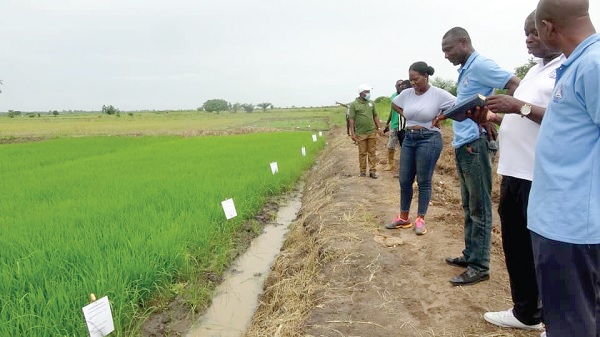|
Getting your Trinity Audio player ready...
|
The World Bank is to help rehabilitate the Weta Irrigation Scheme (WIS) in the Volta Region to boost rice and vegetable production.
The project will be implemented under a $150-million West Africa Food System Resilience Programme (FSRP), a World Bank-funded initiative, with supervision from a technical team of the Ghana Irrigation Development Authority (GIDA), an agency under the Ministry of Food and Agriculture.
The WIS has been selected as one of the most vibrant rice producing schemes in the country for rehabilitation under the FSRP following a recommendation by GIDA.
Two other beneficiary projects under the FSRP intervention are the Kpong Irrigation Scheme, where the documentation is ready for the project to start, and the Tanoso Irrigation scheme.
Currently, partners in the implementation of the WIS project are preparing documentations for actual work to begin.
Significance
Rehabilitation and modernisation of works of the dam which are expected to start in the Ketu North Municipality in three months’ period will more than double the current acreage under cultivation and increase rice production.
This will complement other interventions to ensure food sufficiency and reduce rice importation into the country.
The acting Chief Executive Officer (CEO) of GIDA, Richard Oppong-Boateng, told the Daily Graphic during a two-day tour of the facility that output at the WIS, which averaged 4,400 tonnes of rice for two cropping seasons on 550 hectares (ha), would be increased to 950 hectares with an output of 11,400 tonnes of rice for two cropping seasons per year after the expansion.
He added that the average incomes of some 1,095 farmers, made up of 840 men and 255 women under the scheme would be enhanced, while the indirect jobs it offered to 5,000 people in its 23 catchment communities would also be increased upon completion of the project.
The WIS is one of the 191 irrigation schemes in the country with a huge potential for large-scale rice cultivation.
Out of the number, 153 of the schemes are operating at full capacity. On the average, a farmer needs GH¢50,000 to develop a hectare of land.
Support
Mr Oppong-Boateng said the support of the government and private sector was necessary for farmers to tackle land development issues to enable them to produce more with good agronomic practices.
The chief executive said to be self-sufficient in rice production, the country needed to at least develop 10 schemes similar to the WIS to be able to produce about 300,000 tonnes of rice in one cropping season
Source: myghanadaily


